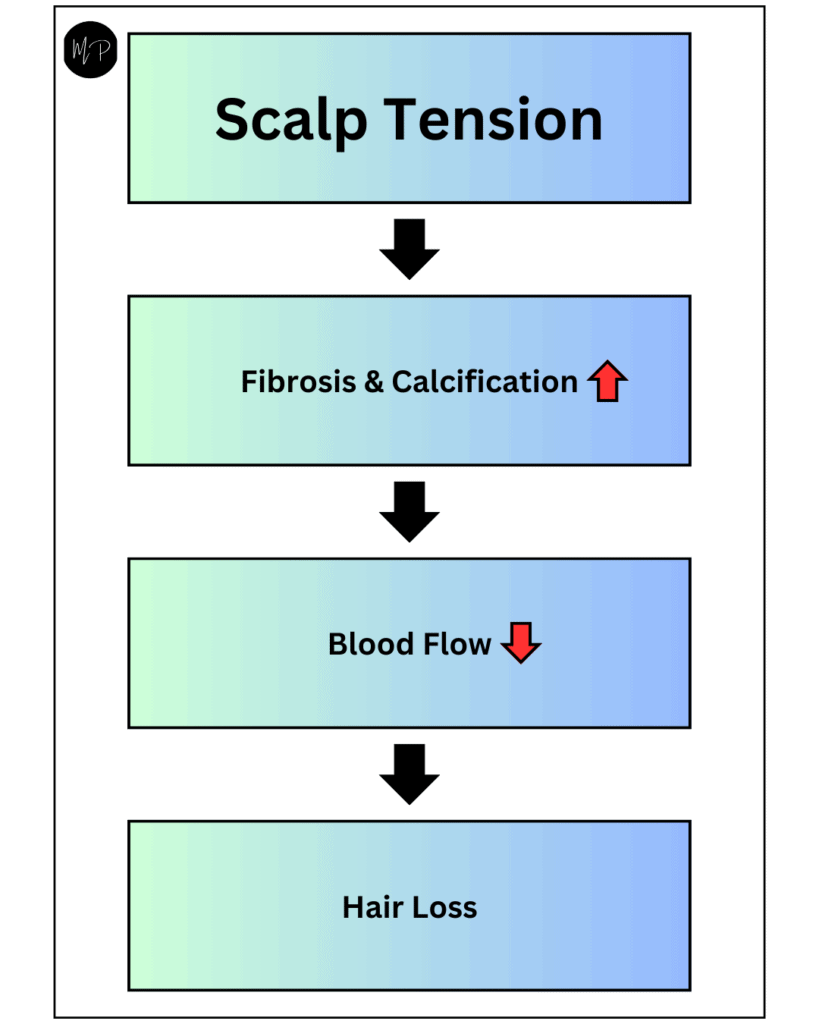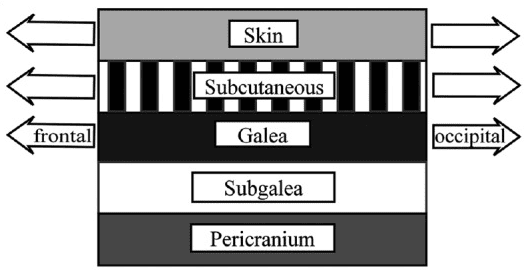Can A Grounded Headband Help With Hair Growth?
Can a Grounded Headband Help With Hair Growth? Its a complicated question, so lets dive in!
What Is Grounding And What Are Its Benefits?
Earthing, also known as grounding, is a practice that involves connecting oneself to the Earth through direct physical contact. This concept is based on the idea that our bodies can regularly and naturally absorb electrical charges from the Earth, leading to various health benefits. The Earth’s surface is abundant in negatively charged electrons that, when absorbed by the body, can neutralize positively charged free radicals and inflammation, thereby promoting physical well-being.
The process of earthing can be achieved by walking barefoot on grass, sand, or concrete or by using conductive systems that channel the Earth’s energy indoors. It is believed that direct contact with the Earth helps restore the body’s natural electrical state and promotes better sleep, boosts the immune system, reduces stress, and alleviates chronic pain. These benefits are attributed to the Earth’s electrical potential, which is thought to have been diminished in modern societies due to a lifestyle that largely isolates us from the ground. By reconnecting with the Earth’s energy, proponents suggest that we can restore balance and improve overall health.
So now that we understand how grounding can benefit our bodies let’s talk about how it can reverse hair loss.
Scalp Tension And Its Affect On Hair Growth
Let’s start with scalp tension
Research indicates that excessive scalp tension, often caused by tight hairstyles, can adversely affect hair follicles, leading to hair loss. A tightly pulled ponytail, braids, or the consistent use of extensions or weaves can exert significant mechanical stress on the scalp, known as traction. Traction alopecia, a common type of hair loss resulting from prolonged traction, occurs when constant pulling forces cause inflammation and damage to hair follicles.
This inflammation disrupts the natural hair growth cycle, leading to the weakened and eventual loss of hair.
I think we can all intuitively see how scalp tension causes hair loss but what if… chronic inflammation causes our perimeter head muscles to act like an incredibly tight pony, constantly putting our follicles under stress until the hair follicle dies.
If your interested in the other theories of hair loss check out this article
The study aimed to investigate the stress distribution in the galea and its relationship to the clinical progression of male pattern baldness. The photos below provide a visual representation of the study’s findings.
The interesting part is the high stress sections below closely resemble the male pattern baldness pattern.
So scalp tension caused by chronically contracted muscles may cause hair loss.
But let’s dig a little deeper at the downstream effects of scalp tension.
Causes Of Scalp Tension
Fibrosis
Fibrosis, involves excessive deposition of extracellular matrix components, specifically collagen fibers, which gradually replace healthy tissue. The underlying causes of fibrosis are multifactorial and can stem from persistent inflammation, tissue injury, and consequent repair processes.
In response to insults, such as repeated injuries or chronic inflammation, immune cells release pro-inflammatory signals that trigger the activation of fibroblasts, the primary cells responsible for collagen synthesis.
Calcification
Calcification and fibrosis are complex pathological processes that can occur in various tissues and organs throughout the human body. Chronic diseases underlie both impaired blood flow and hair loss, disrupting the function and structure of affected tissues.While the exact causes of calcification and fibrosis can vary depending on the specific context, various underlying mechanisms contribute to their development.
Calcification refers to the aberrant deposition of calcium salts within tissues. It can arise due to multiple factors, including metabolic imbalances, genetic predisposition, chronic inflammation, and cellular dysfunction. In the case of soft tissues, such as blood vessels, heart valves, and kidneys, calcification often results from a disruption in the normal balance between calcium metabolism regulators, such as calcium-sensing receptors and inhibitors like pyrophosphate.
This dysregulation can lead to the accumulation of calcium salts, eventually forming calcified nodules or plaques. Additionally, conditions like age-related macular degeneration, atherosclerosis, and certain genetic disorders can contribute to the development of calcification in various structures throughout the body.
So if we look above we can see some overlap (I get this might be cherry picking but stay with me). Fibrosis and calcification can both be caused by inflammation – more specifically chronic inflammation.
Blood Flow In Hair Loss
The phenomenon of hair loss has long intrigued researchers and medical professionals due to its complexity and multifactorial nature.
Impaired blood flow to the scalp contributes to hair loss, and research has shown that individuals with Androgenetic Alopecia (AGA) experience a significant 2.6-fold reduction in blood flow compared to those without the condition.
The hair follicle is reliant on a steady supply of oxygen, nutrients, and hormones transported by the blood for its proper functioning.
Reduced blood flow to the scalp hampers the timely delivery of essential components to the hair follicle, compromising its health.
Additionally, poor blood circulation can also disrupt the natural growth cycle of hair. Hair growth occurs in cycles, consisting of anagen (growth phase), catagen (transition phase), and telogen (resting phase).
Impaired blood flow to the scalp impedes hair growth by prolonging the telogen phase, leading to increased hair shedding and extended periods of no hair growth. Moreover, inadequate blood flow may disrupt the signaling pathways responsible for hair cell proliferation and differentiation, further contributing to hair loss.
Scalp Tension Model in Hair Loss
So let’s summarize how scalp tension cause hair loss by using the model below

As you can see above – Scalp Tension causes Fibrosis and Calcification to increase on the scalp. Fibrosis and Calcification leads to lower blood flow – eventually leading to Hair Loss
How Could A Grounding Headband Help Us with Hair Growth?
Reduces Muscle Tension
Grounding has been shown to help with muscle damage
Is there any evidence that reducing muscle contraction will lead to hair growth?
Our best evidence is the many studies completed by Dr. Freund.
Dr Freund noticed that many people who have hair loss have very tight perimeter head muscles.
He conducted many experiments injecting men with Botox to reduce scalp tension and discovered that 80% found improvement.
The treatment works by relaxing the muscles in the scalp and increasing blood flow, which in turn nourishes the hair follicles and promotes hair growth.
In theory the headband may work in a similar manner to Botox.
Decreases inflammation
it targets the muscles that are constantly contracted on the sides of our heads
The results indicated a significant decrease in various pro-inflammatory markers, including C-reactive protein and white blood cell count, after just one hour of grounding. Another study involving patients with chronic pain conditions demonstrated reduced pain levels and inflammation markers following grounding sessions.
So Can A Grounded Headband Help With Hair Growth?
In theory the headband would help prevent scalp tension and would lead to more hair growth. By reducing scalp tension we would reduce the chance of increasing calcification and fibrosis of the scalp, thus maintaining blood flow to the hair follicle.
Now is this a cure all?
Now I’m not super confident about Reversing it may have to be done with massaging, topicals, and special supplements.
My Favorite Grounded Head Band
The Healthy Grounded Headband is the best. It has a stretchy and adjustable fit, allowing it to securely stay in place. Additionally, it is thin and can be worn during sleep. So whether you’re watching Tv, working at your desk, or heading to bed, this headband is a reliable choice to decrease scalp tension and help your hair grow
Discover more from Maxwell Person
Subscribe to get the latest posts sent to your email.
